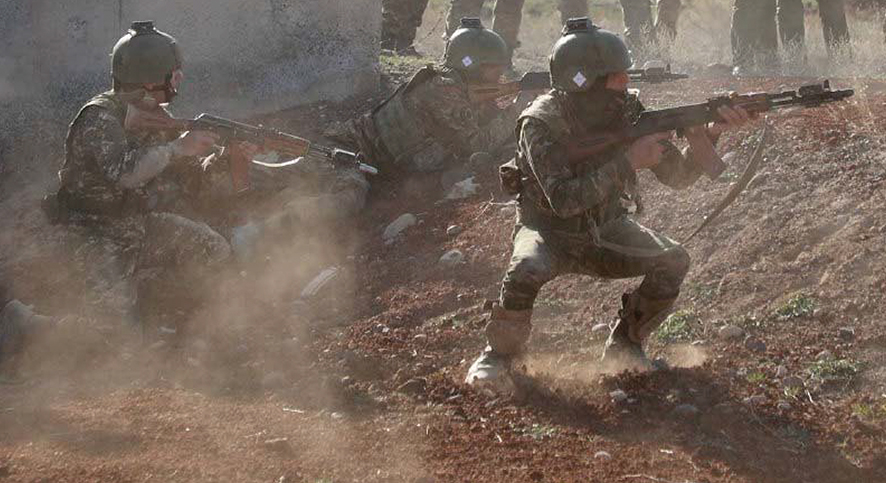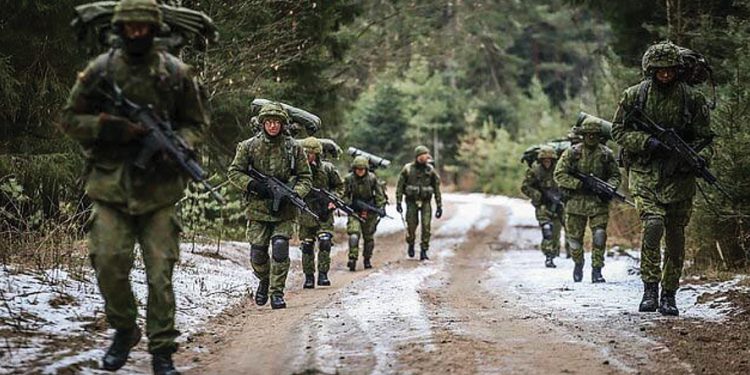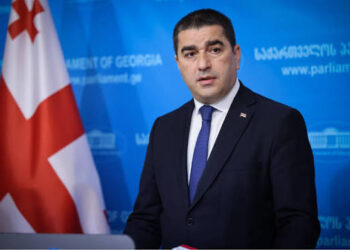The idea that wars begin with professional armies and finish with citizen soldiers has been a recurrent international theme, with both Ukraine and Israel calling upon civilians to bolster the ranks of their regular forces. Some European countries, meanwhile, have publicly floated the idea that the reintroduction of conscription may be a necessity in the future.
In many countries, particularly those of the Eastern Bloc and former Soviet Union, the idea of ‘military reserves’ constitutes those citizens who have completed their period of mandatory service and returned to civilian life. Their names will be retained on a ‘reserve list’ from where they can be called upon at times of national need.
Ukraine, Israel, and Russia have all made use of this practice, but the idea of a ‘reserve’ being composed of former conscripts is not universal. Indeed, although conscription is arguably inevitable in cases of peer-on-peer conflict, civilians forced into uniform do not necessarily have to be the first line of reinforcement for regular forces.
Particularly in the Anglophone world, ‘reserve’ forces refer to part-time soldiers, civilians who commit to military training on weeknights and weekends. As volunteers, they are under no obligation to serve, but choose to do so in order to maintain their civilian employment and lifestyle while also undertaking a military career.
Under this system, units composed entirely of part-time troops can contribute small numbers of soldiers to reinforce or supplement a Regular unit embarking on a deployment, or be activated as standalone formations in their own right.
Having entire battalions and regiments (or even brigades and corps) made up of part-time soldiers can, therefore, give an army considerable strategic and tactical advantages; this is not solely due to the fact that part-time volunteers are motivated in a way that conscripts are not, but also because their roles and responsibilities are not limited to those of light or motorized infantry.
In most cases, those armies which consider an ‘army reserve’ to be a list of former conscripts will not expect their ‘reserve’ troops to undertake any duties beyond those of basic infantry. All too often, conscript forces are pressed into service on the frontlines, but professional volunteer reserve troops can be trained for any role in the armed forces: artillery gunners, vehicle mechanics, combat engineers, signals and communications specialists, and even special operations forces are all jobs that can be performed by soldiers who train on a part-time basis. Part-time troops can also bring in their expertise and experience from the civilian world for specialist roles.

With the rising threat from Russia, the following conundrum is facing a number of NATO countries:
• They do not have a sizeable standing army
• They have abolished conscription
• They do not make use (or extensive use) of professional part-time troops
A return to conscription does not necessarily, and arguably should not be, the answer. The generally poor performance of conscript forces has been documented in both World Wars, Vietnam, the Falklands (as used by the Argentine military), and in more recent conflicts in the former USSR.
In light of this, some of these nations have suggested a new form of national service, in which citizens will volunteer to undergo a training program lasting at least three months before having their names put on an ‘Army Reserve’ list. This could be called ‘volunteer conscription.’ The proposed system, however, does not result in soldiers who are any better trained than conscript forces, and in fact actually robs conscription of its principle benefit – the sheer volume of troops it produces.
In fact, it could be stated that this suggestion of service falls between every conceivable stool. Asking volunteers to serve full-time for a number of months in order to be placed on a Reserve list is unrealistic; anyone who can actually commit to full-time training is more likely to opt for service in the Regular army. The chance to recruit those who would wish to serve but are unable to do so on a full-time basis is entirely missed under this proposal.
Training professional part-time forces also has the added benefit of being cost-effective. In order to teach part-time recruits, military bases are only obligated to function for a few additional weeknights and weekends; in time, the training can be entirely carried out by other part-time Reserve troops, and so Regular forces will not be tasked with additional duties at all.
As stated, the bulk of those seeking to serve part-time will be people whose civilian career or family circumstances preclude Regular enlistment. Many soldiers of the US Army’s National Guard or the British Army Reserve are people who felt that the chance to join had passed them by, and that giving up civilian and family success to enlist in the Regular forces would be deeply unwise. Reserve service, therefore, offers them the opportunity to retain their civilian circumstances while fulfilling their desire to wear a uniform.
Others can be attracted by qualifications that can be earned through training and which have applications in the civilian world. This is already a major recruiting tool for the Regular forces, but can also be used by their Reserve counterparts.
Former soldiers, too, make up a portion of Reserve forces. In many cases, these veterans have moved on professionally, and therefore, like many civilians, are not in a position to re-enlist full-time. In fact, for many of these, it is not the military career itself that makes them nostalgic for service, but rather the military lifestyle. Their experience and prior training can be harnessed by allowing them to return on a part-time basis.
Whether part-time service is introduced to replace conscription or augment it, its undeniable benefits should render it a critical point of consideration for those countries aiming to improve the state of their national defense. While its introduction would take time, it would be relatively simple to implement – and prove itself decidedly cost-effective.
***
Defense Sector Review is an analysis of the regional and relevant security and defense issues by the team at Mercury Strategic Services, a defense consulting, training, and advisory company based in Tbilisi, Georgia and at www.mercstrat.com.














